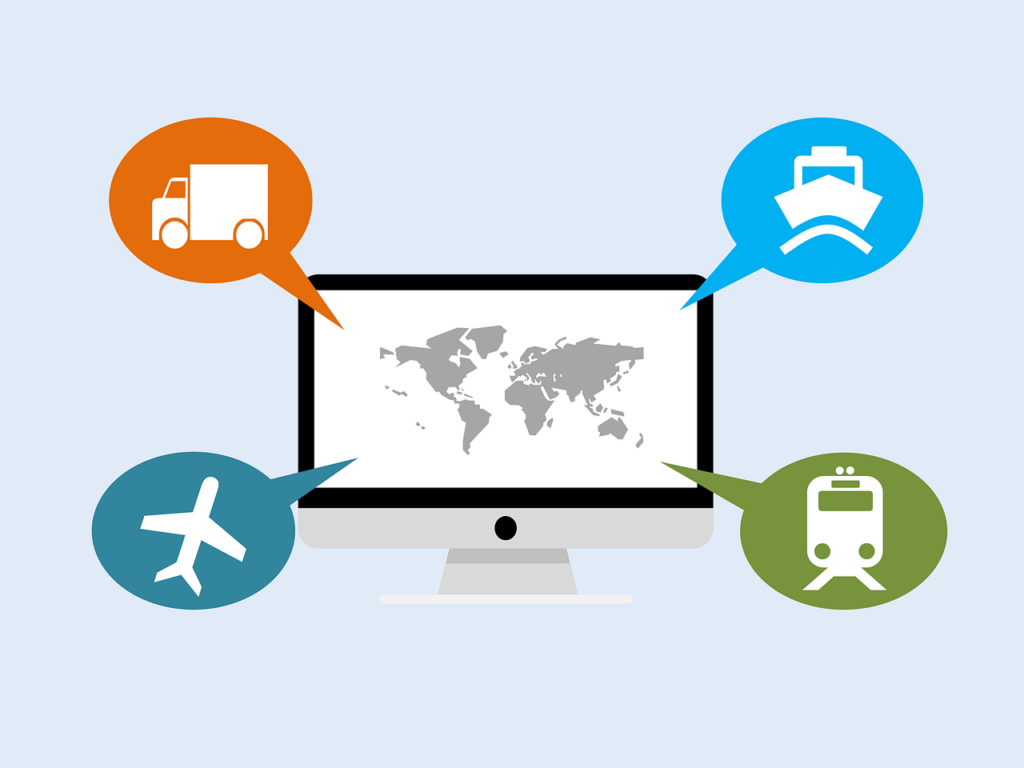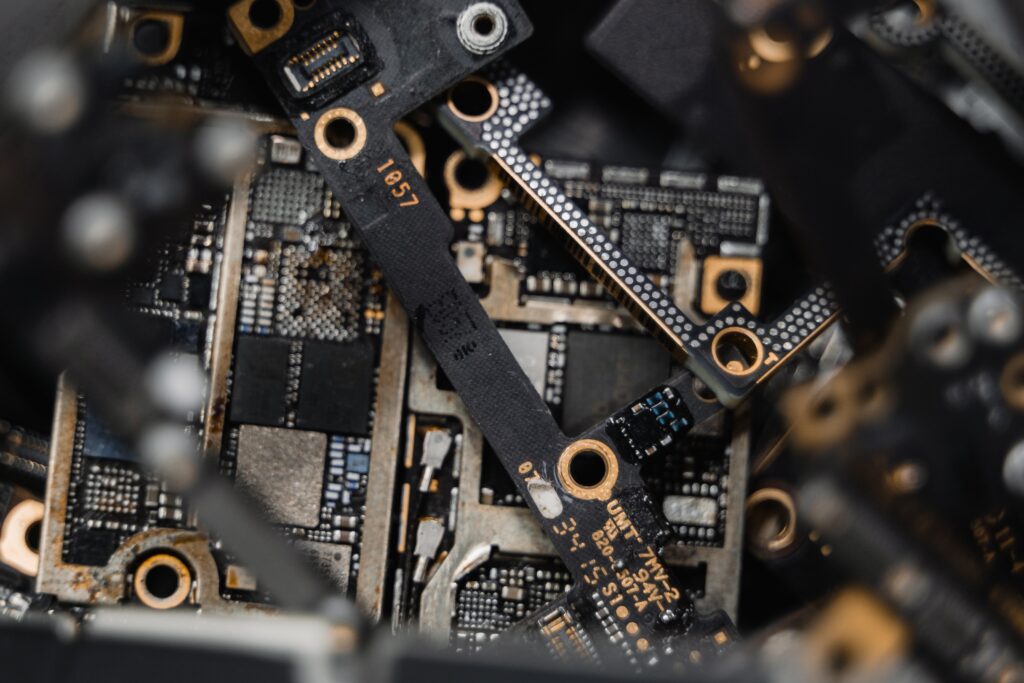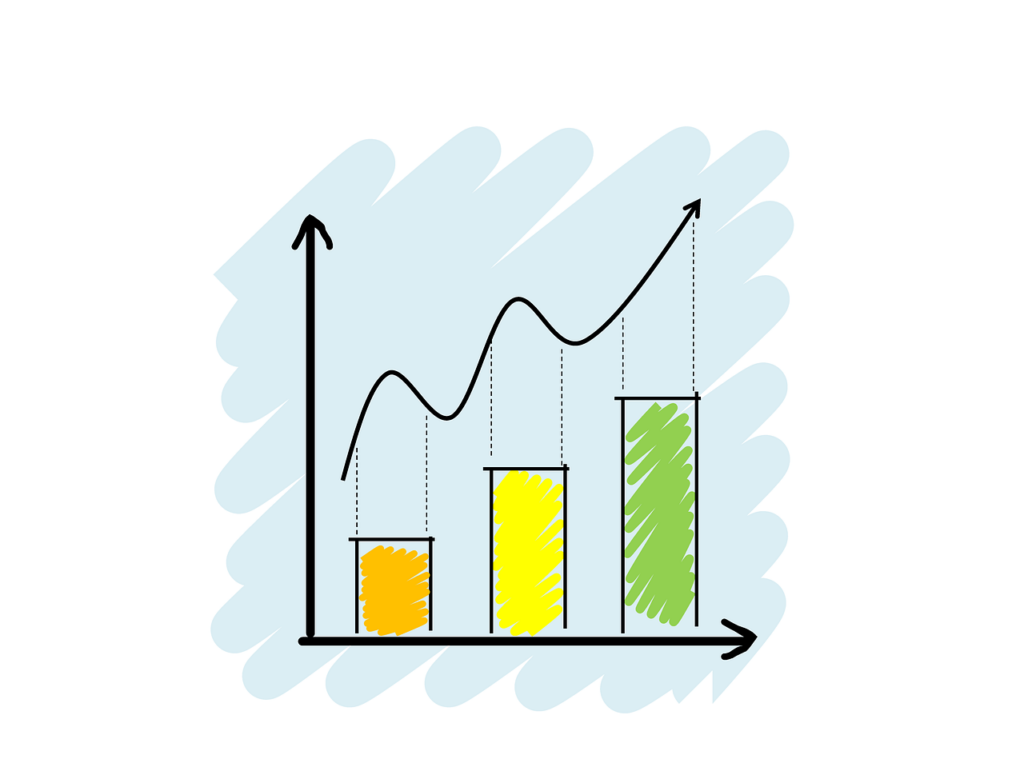Ethical supply chain practices have increased in priority in recent years as many more organisations align with the UN Sustainable Development goals. In particular, goal 12, Responsible Production and Consumption.
Sustainability compliance is also top of the agenda for the UK Government whose Net Zero Strategy 2021 requires all UK businesses to reach net zero by 2050. * Alongside this, the 25-year environmental plan aims for there to be zero avoidable waste by the same deadline. ^
Focused on the reuse and recycling of materials when products reach the end of their usable life to minimise our impact on the environment, the plan has seen many organisations restructure their traditional forward model as they transition towards ethical reverse supply chain operations.
In 2020, Gartner reported that 70% of supply chain managers were planning to invest in the Circular Economy’s ‘closed-loop’ model – increasing resource efficiency and enhancing the sustainability of their supply chains.

What is a reverse supply chain approach?
Inverting the traditional forward model, within reverse supply chains, the product moves backwards from the end-consumer to the supplier, retailer or manufacturer.
Also known as reverse logistics, this collaborative, upstream flow recovers the value of a complete product or its recycled components through repurposing. Adopting a zero-waste mindset, the chain is centred around the 5 R’s of reverse logistics processes; returns, resale, repairs, repackaging and recycling.
As an example of a reverse supply chain, global retailer, IKEA, is leading the way with its pledge to become fully-circular by 2030. The chain plans to only produce 100% circular products from renewable, recycled or remanufactured materials along with the provision of take-back schemes, furniture repair and recycling solutions to its customers. In 2019, IKEA reported that it gave 47 million recovered products a second life. +
For a sustainable supply chain to be successful, end-to-end transparency of environmentally responsible practices is essential throughout the entire reverse logistics process. This stretches beyond the products or solutions themselves, to supporting services such as the use of renewable energy supplies and green, last-mile logistics.
The importance of reverse supply chains in the IT industry.
The circular economy and the reverse supply chains which support it our central to environmentally friendly ITAD services. When it comes to the responsible disposal of our redundant IT equipment, IT asset disposal companies assess each device, taking age, quality and any damage into account, so the asset’s residual value can be maximised.
Wherever possible, the device’s hardware, software and operating system are upgraded to improve functionality, performance and therefore resale value. The client can then choose whether to redeploy the renewed device elsewhere in their business, donate the device to a school, charity or social enterprise, or sell redundant IT assets, recovering the residual value from the sale to boost ROI,
Each route extends the device’s lifecycle and therefore, lifetime value.
As a last resort, end-of-life IT assets which no longer hold value as a complete device, can be broken down into their constituent parts and recycled. These perfectly serviceable components can be remanufactured into new devices.

What are the benefits of reverse logistics?
Achieving Circularity.
Green supply chain management is driven by the guiding principles of the circular economy; escalating the need to transition from our ‘take, make’ dispose’ consumption culture. By ‘reducing, reusing and recycling’ the materials we already have we minimise waste, increase resource efficiency and our likelihood of meeting those UK Government targets.
By disassembling products or reprocessing the raw materials for reuse, the circular supply chain incorporates our ‘waste’ from redundant IT assets into the design of next-generation devices.
Taking this further, by reducing complexity and building circularity into product design, our devices can be manufactured with repair/refurbishment in mind from the outset, maximising lifespan, lifetime value and durability.
Minimising the environmental impact of our technology.
By utilising existing devices, components and raw materials, we reduce energy consumption, lower greenhouse gas emissions and generate far less e-waste. This hazardous waste often ends up in landfill, creating toxic soil and water pollution.
By preventing the manufacture and transportation of brand-new components, we eliminate the total emissions for any product substantially. In the case of our business technology, this can be up to 80% of a device’s lifetime CO2e. **
The reverse supply chain also includes repurposing the original product, to create something else entirely. Our technology contains many of our finite precious metals – gold, silver, palladium, copper… Further processing can extract these elements from connectors or circuit boards. This prevents environmentally destructive mining for earth’s dwindling virgin materials, avoiding pollution, substantial emissions and negative consequences for local communities.
Beyond the moral obligation, consumer demand for environmentally and socially responsible operational processes, products and services is at an all-time high; this extends to the third parties you may collaborate with throughout your supply chain. Partners should be regularly audited to ensure they are operating to the same ethical standards.
Transparency regarding corporate ESG has been proven to build consumer trust, a strong brand reputation, competitiveness and long-term business growth. On the flip side, eco-consumers are not afraid to call out those who fail to trade responsibly.

Building supply chain resilience.
Whilst some disruptions are inevitable, reverse supply chains reduce the level of vulnerability, increasing resilience and mitigating uncertainties.
When COVID-19 shook the world, it quickly became apparent how fragile our product and produce supply chains really are. And as the world began to recover, further disruption ensued due to the war in Ukraine.
Although, it isn’t only such significant and thankfully rare global shocks that can create havoc. In 2020, the global semiconductor chip crisis followed when consumer demand outstripped supply. In that year alone, the industry grew by 11%; in part due to the rapid rise of the Internet of Things. ^^
The reverse supply chain ensures a steady, near-immediate supply of components, whilst limiting environmental impact. It provides greater cost-efficiencies, faster production and increased adaptability should demand spike; unlike the chip shortage, which left tech manufacturers waiting 6 months for parts, whilst new facilities were built.
Maximising budgets.
Both the pandemic and the chip shortage combined with exceptional consumer demand during the government lockdowns; you couldn’t get hold of technology for love, nor money.
The sustainable IT procurement market grew rapidly and has remained stable since as businesses and consumers were quick to recognise that they could save between 70-80% when buying a renewed device of a similar specification, compared to buying new. ++
The lifespan of the individual components is far longer than the standard 3-4 years upgrade cycles operated by many medium-large-sized companies. As value declines over time, by using recycled parts, the manufacturers reduce supply chain expenses and increase profitability.
Eliminating risk.
When it comes to the IT reverse supply chain, there is also a significant risk – potential data governance issues. You must protect company data before recycling, reusing, or reselling the redundant IT assets into the secondary market.
Unlike traditional data shredding or degaussing data destruction services, sustainable, secure IT asset disposal uses advanced Blancco data erasure software to destroy the data, without damaging the device, so it can be reused. The system is approved by the UK’s National Cyber Security Centre, data wiping services using this solution will provide a tamper-proof ITAD chain of custody certificate for each asset; guaranteeing your legal compliance with the GDPR data destruction requirements.

With sustainable IT asset disposal services providing efficient, fully circular solutions, companies now have highly accessible routes to responsibly dispose of their business technology; meeting their moral obligation and the UK’s legislative targets.
By extending the lifespan and lifecycle of materials, reverse logistics best practices will create economical, resilient supply chains. By maintaining an efficient flow of components, we can ensure we can meet demand for new devices as we reverse our wasteful ‘take, make, dispose’ trend, reducing emissions and environmental pollution.
With strong residual values, incorporating IT reverse logistics into your IT asset disposal policy will provide cost-efficient disposition, increasing device ROI. A reliable ITAD supplier will ensure your data is safeguarded, whilst you demonstrate your organisation’s commitment to the circular economy; maximising resource efficiency for a sustainable future.
*Commons Library UK Parliament, ^ UK Government, +Forbes, **Capgemini, ^^ZDNET, ++Signals IT.
tier1 is a fully circular, environmentally friendly ITAD partner. Providing tailored sustainable disposition solutions, we help our clients get the very best residual values for their end-of-life IT assets.
Whether sold as complete devices on our 5-star resales outlet or your legacy assets are recycled, as a Gold Blancco partner, we guarantee your legal GDPR compliance, preventing any future data security issues.
Ask us about our sustainable data erasure services and how we can boost the ROI of your business technology. Chat with our friendly team on 0161 777 1000 (Manchester), 01621 484380 (Maldon) or visit www.tier1.com
Resources.
Forbes, LinkedIn, Optimoroute, Zdnet, ITAD Summit, Lifespan Technology, Hitachi, Pride Industries, IKEA, TES-AMM, NetSuite, Capgemini, Signals IT, Commons Library UK Parliament, United Nations, Gartner, UK Government,



